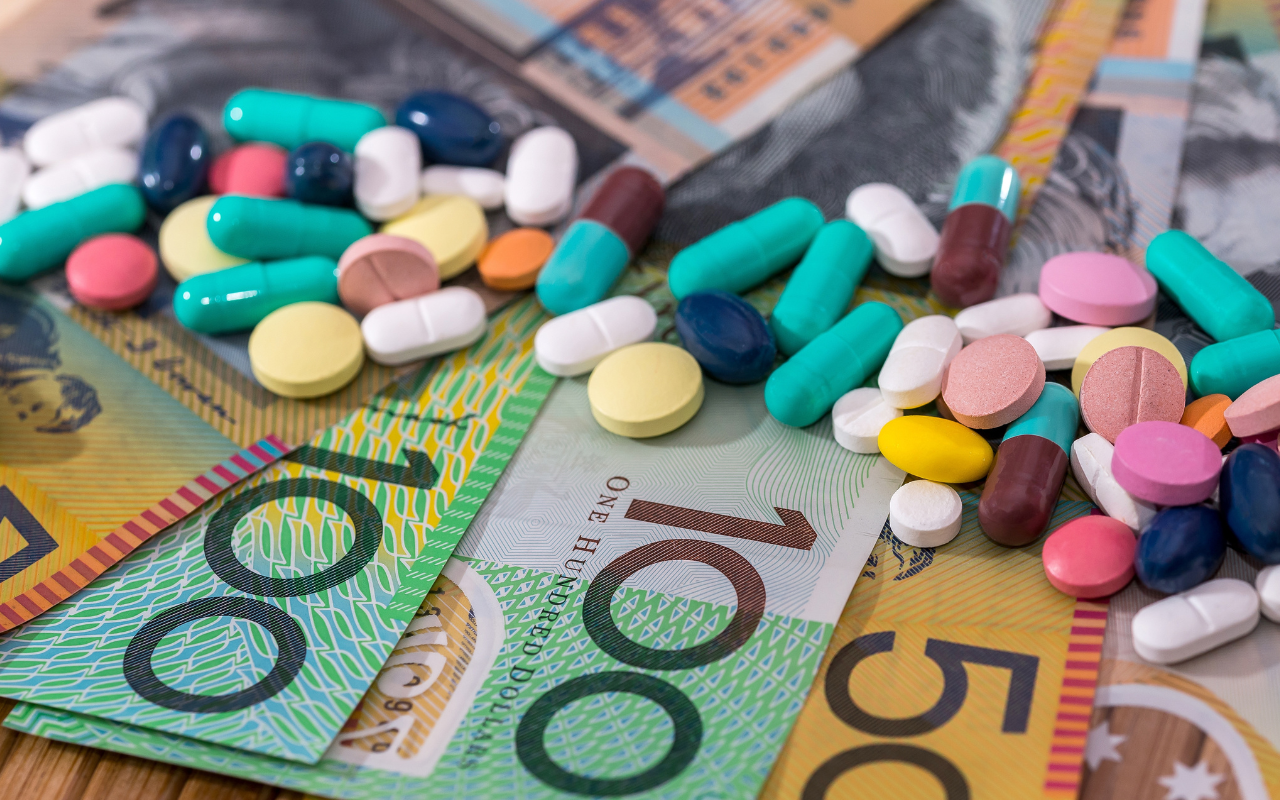As the Trump administration continues its program of “reciprocal tariffs” and the pharmaceutical industry calls out the Pharmaceutical Benefits Scheme (PBS) and generic drugs, Australian health experts say that Australia must preserve the current system.
InSight+ spoke with experts about how trade policy and patent pressure from the US could affect medicine affordability and clinical care in Australia.
In March, US pharmaceutical lobby group PhRMA wrote to the Trump administration regarding Australia’s pharmaceutical system, referring to a “lack of adequate patent holder notification,” and, “difficulties in listing new medicines on the PBS” as key concerns.
Although the US’s Foreign Trade Barriers Report didn’t name the PBS directly, it raised concerns about Australia’s patent notification rules as trade barriers.
While Australian medicines were not targeted specifically in the Trump administration’s initial round of tariffs, Health Minister Mark Butler has warned that large pharmaceutical companies exporting to the US could come under pressure next.
What regulations are under pressure?
Dr Deborah Gleeson, Associate Professor of Public Health at La Trobe University, has closely tracked US attempts to influence Australian medicine policy over multiple administrations. She says the focus is broader than the PBS alone.
“We’ve heard both Anthony Albanese and Peter Dutton say we’re not going to trade away the PBS, but what the Trump administration wants goes beyond just PBS processes,” said Dr Gleeson.
Recently, Mr Butler said that Australia would not alter the PBS in response to external lobbying.
Dr Gleeson says the focus on the PBS alone; however, may be a red herring.
“It’s important to understand what’s really at stake. The government might promise not to change the PBS, but changes to other laws — like those regulating generics — could still slow down access to affordable medicines.”

Patent linkage vs the Australian model
Dr Gleeson says the US is pushing for stronger “patent linkage” laws that mirror its own system.
In the US, the Food and Drug Administration (FDA) must both assess the safety of a drug and notify patent holders of potential infringements. This system can be used to delay generic competitors and the release of generic drugs with the Therapeutic Goods Administration (TGA) and getting those drugs on the PBS.
“In the US, generic companies must notify the patent holder when they plan to come to market. That company can then ask the FDA to delay approval for up to 30 months,” Dr Gleeson said.
The delay is often longer than 30 months, says Dr Gleeson, and represents a significant delay to the generics market.
Australia’s system differs. Here, companies wanting to bring generics to market apply to the TGA and must either: a) declare their product does not breach a patent; or b) notify the patent holder of their intention to bring a drug to market.
Dr Gleeson says that most companies choose the former option.
Not only is this an advantage for the generic product, but approval of the drug is essentially what lowers the prices of medications overall.
“If the generic is already approved and listed on the PBS, that triggers a 25% price cut for all versions — including the patented one — under the First New Brand Price Reduction rule,” Dr Gleeson explained.
Additional policies like price disclosure then kick in, causing further market price reduction.
“Once there’s a lot of generic competition, prices fall significantly,” said Dr Gleeson.
Dr Gleeson says that adopting a US-style patent linkage system could change this and could result in higher prices and fewer affordable options for consumers.
Will Australia make concessions?
Despite strong public discourse and the strength of public support for the PBS, Dr Gleeson says there is some risk that Australia could yield to trade pressure.
“The Trump administration has slapped this 10% tariff on all products from Australia and they’ve listed our regulations around pharmaceuticals as one of the barriers to trade. Presumably one of their reasons for introducing tariffs is to try and get other countries to make regulations more friendly to US companies,” she said.
“It’s interesting. The US says our patent linkage system is a barrier to trade. But it’s compliant with the rules that were agreed between Australia and the US in the Australia–US Free Trade Agreement,” she said.
Dr Gleeson co-authored a paper comparing patent linkage systems in the US, the UK, Canada and South Korea, which relates interesting differences in the approach of other countries to similar pressure.
Consumers most at risk in a global trade war
Dr Elizabeth Deveny is the CEO of the Consumers Health Forum (CHF), the national voice for health care consumers.
Dr Deveny says that the PBS is a promise that must be kept for Australians.
“The CHF ensures the decisions made about health are not only clinically and economically sound but shaped by the people most affected by them. It offers predictability, equity, and dignity in a system that could otherwise have been ruled by profit margins — and we’re seeing a little bit of that now, in the news,” said Dr Deveny.
“For people managing chronic illness who take lots of different kinds of medication, the PBS isn’t just helpful, it’s essential. It’s a promise,” she said.
Dr Deveny said that US-based pharmaceutical companies have long seen the PBS as a barrier.
“Australia’s willingness to negotiate prices based on value, not demand, makes us a target when international policy tilts towards industry. And the current US political climate, especially under a Trump-style agenda, has revived this talk of ‘foreign freeloaders’ on American innovation. It’s not new, but it’s pretty loud at the moment, and it frames public access systems like ours as threats to their business model,” she said.
“So, let’s be clear. Pharmaceutical innovation is critical. But innovation does not justify unchecked pricing. And public systems exist to ensure that breakthroughs reach people, not just those who can afford to pay the most,” said Dr Deveny.
Dr Deveny says there are two key risks if the Australian government bows to US pressure.
“The first is that large pharmaceutical firms might decide to delay or even not apply for PBS listing if they feel the price doesn’t meet their targets. This already happens. And when it does, Australians wait longer, especially for people who’ve got either rare or high-cost medications. It’s not theoretical,” said Dr Deveny.
“Secondly, we should stand to face political pressure from the US to wind down the PBS through trade negotiations. We’ve done it before,” she said.
“What Australia has achieved is quite rare. It’s a public scheme that delivers both access and fiscal discipline. But it’s also vulnerable,” said Dr Deveny.
“Australians have been unequivocal. We don’t want a US-style health system. And if that means the government going to the WTO [World Trade Organization] or some other mechanism in order to negotiate a better deal, Australians expect that. We don’t want to see the PBS become collateral damage in a global trade war,” she said.
“If we start designing a health care system to suit the pricing preferences of multinationals, we’ve lost our way.”
Subscribe to the free InSight+ weekly newsletter here. It is available to all readers, not just registered medical practitioners.

 more_vert
more_vert
We’ve lost our way already: gone down the path of empty houses and tent cities, visible homelessness just like America. Next they plan to make the vulnerable sick. This not just an attack on the poor, it behooves entrenched poverty. Housing? tick. Health? Tick. Education? It’s next. Case in point: NAPLAN.